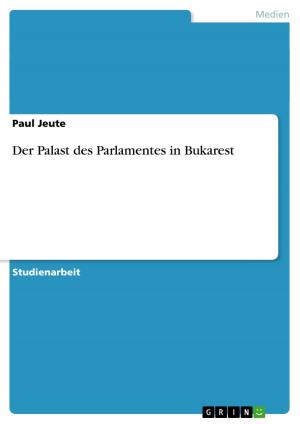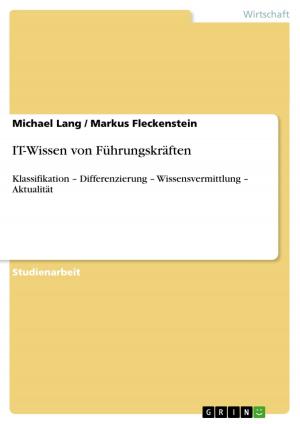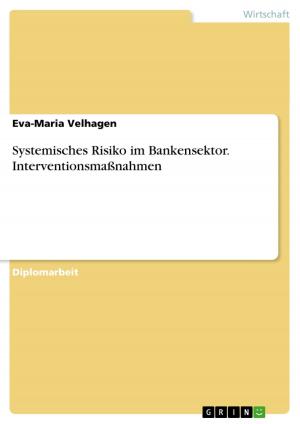| Author: | Christoph Weigel | ISBN: | 9783656106326 |
| Publisher: | GRIN Verlag | Publication: | January 23, 2012 |
| Imprint: | GRIN Verlag | Language: | English |
| Author: | Christoph Weigel |
| ISBN: | 9783656106326 |
| Publisher: | GRIN Verlag |
| Publication: | January 23, 2012 |
| Imprint: | GRIN Verlag |
| Language: | English |
Seminar paper from the year 2012 in the subject Business economics - Business Management, Corporate Governance, grade: 1,1, Mannheim University of Applied Sciences (Wirtschaftsingenieurwesen), language: English, abstract: Migration is not a temporary fashion. For thousands of years people have left their native country to build a new existence. But there are different reasons like economical, societal or political factors. Most people tried to find their self-determination, but there were stampedes due to wars or natural catastrophes, too. (cf. Karl Kübel Stiftung 2006) Pierre Eliot Trudeau, the former Canadian prime minister, said that the power of a country is not only about military or economy but also about liberality and openmindedness. But after the attack of the World Trade Centre in 2001 by Islamic terrorists, an antipathy against foreigners emerged in many countries. The fear of different cultures in the own country pushes the care about the national engagement and the loyalty between the population. In industrial countries migrants are often shown as a lower-level community which wants to profit from the better social system. But it should be noted that in most countries the migration and integration policies do not play an important role. (cf. Heinrich Böll Stiftung 2006) But in a slow process the picture of migrants will be changed. More and more migrants can be found in higher positions in economy or politics. For example Philipp Rösler has Vietnamese roots and is the leader of the German party FDP. Another very important change will take place in the CEO position of the Deutsche Bank AG. Anshu Jain with an Indian background will replace Josef Ackermann and so the most significant bank of Germany will be led by a foreigner. This change causes a lifting of the community of migrants. Migrants do not only stress the societal system of industrial countries, now they want to replace natives in the higher society. (cf. Ljoma Mangold 2011) These problems show that the principle of multiculturalism in industrial countries involves a high potential for conflicts. Some industrial countries try to find political solutions to handle the migration problem and the problem of different cultures in one country. But it is not easy due to incompatibleness between the behaviour of different cultures. Others are the ideas of man or social, right and financial perceptions of the native country on the one hand and the foreign cultures on the other hand.
Seminar paper from the year 2012 in the subject Business economics - Business Management, Corporate Governance, grade: 1,1, Mannheim University of Applied Sciences (Wirtschaftsingenieurwesen), language: English, abstract: Migration is not a temporary fashion. For thousands of years people have left their native country to build a new existence. But there are different reasons like economical, societal or political factors. Most people tried to find their self-determination, but there were stampedes due to wars or natural catastrophes, too. (cf. Karl Kübel Stiftung 2006) Pierre Eliot Trudeau, the former Canadian prime minister, said that the power of a country is not only about military or economy but also about liberality and openmindedness. But after the attack of the World Trade Centre in 2001 by Islamic terrorists, an antipathy against foreigners emerged in many countries. The fear of different cultures in the own country pushes the care about the national engagement and the loyalty between the population. In industrial countries migrants are often shown as a lower-level community which wants to profit from the better social system. But it should be noted that in most countries the migration and integration policies do not play an important role. (cf. Heinrich Böll Stiftung 2006) But in a slow process the picture of migrants will be changed. More and more migrants can be found in higher positions in economy or politics. For example Philipp Rösler has Vietnamese roots and is the leader of the German party FDP. Another very important change will take place in the CEO position of the Deutsche Bank AG. Anshu Jain with an Indian background will replace Josef Ackermann and so the most significant bank of Germany will be led by a foreigner. This change causes a lifting of the community of migrants. Migrants do not only stress the societal system of industrial countries, now they want to replace natives in the higher society. (cf. Ljoma Mangold 2011) These problems show that the principle of multiculturalism in industrial countries involves a high potential for conflicts. Some industrial countries try to find political solutions to handle the migration problem and the problem of different cultures in one country. But it is not easy due to incompatibleness between the behaviour of different cultures. Others are the ideas of man or social, right and financial perceptions of the native country on the one hand and the foreign cultures on the other hand.















